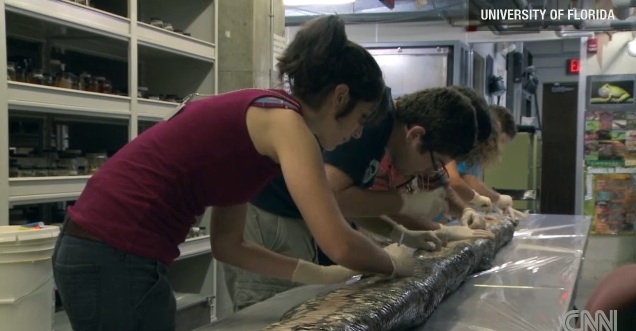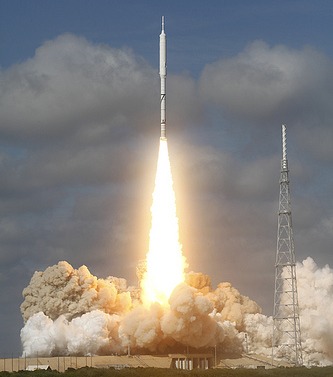Yes, it is awesome the Curiosity rover can Instagram Mars pics back to Earth from 50 million miles away. But ultimately, one goal of all this space exploration is to have another place to go if we really royally screw up the planet, right? XKCD’s Randall Munroe answers a critical question about that overplayed movie plot secret government plan ahem THEORETICAL POSSIBILITY: If we actually needed to get billions of people off this planet … could we really do it?
If you haven’t been reading Munroe’s new “what if?” feature, in which he answers “hypothetical questions with physics,” know that it is only slightly less awesome than having a robot send you pictures from another planet. There are stick figures, and there is science! What more could you want?
Munroe runs through a few different options for launching billions of people off the planet: rockets like we use now; an elevator that ferries people up from Earth to a satellite in space; rockets that ride a wave of nuclear energy out of the atmosphere. But today’s rockets, it turns out, would likely take more fuel than we have available to produce and launch. The space elevator depends on the invention of a cable stronger than any ever created thus far. So the best option is to basically blow up a nuclear bomb behind a space shuttle:
You’d think the spacecraft would be vaporized, but it turns out that if it has a well-designed shield, the blast flings away before it has a chance to disintegrate. If it could be made reliable enough, this system would in theory be capable of lifting entire city blocks into orbit, and could—potentially—accomplish our goal.
Upshot: Anyone who wants to have a chance in hell of leaving the planet when the giant pythons take over should either start getting really rich right now or should learn a skill so valuable to humanity they’ll get a seat on one of a small number of conventional rockets. Because it’s unlikely we’re going to be developing nuclear-pulse propulsion anytime soon.



